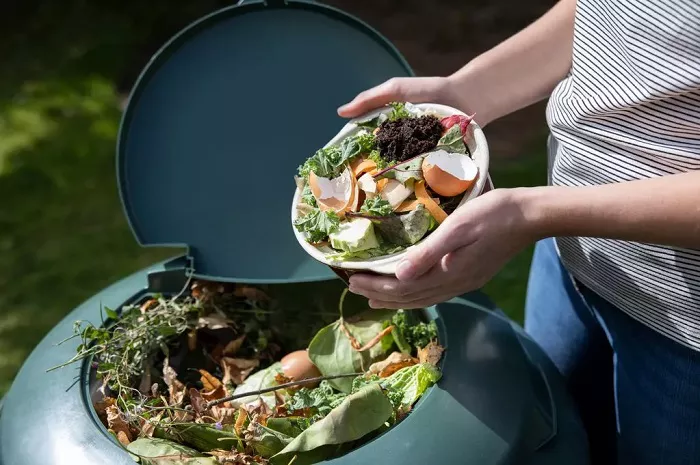Composting is an excellent method for reducing food waste and enhancing garden quality. However, it’s not without its challenges. If you find that your compost heap isn’t heating up, there could be several underlying causes.
Composting is a delicate process that requires a precise balance of air, moisture, and warmth to produce nutrient-rich material. Any disruption to this balance can hinder proper decomposition, leaving you with a pile of undecomposed waste. Heat is particularly crucial, as it sustains the microbes responsible for breaking down the materials and helps eliminate harmful germs and pests, including weed seeds. Without adequate warmth, your compost pile may become a breeding ground for unwanted elements.
One of the most frequent reasons for a compost pile not heating up, according to experts at Homes and Gardens, is an improper ratio of nitrogen to carbon. Achieving a balanced mix of these elements is essential for microbial activity, which generates heat and facilitates decomposition. A simple rule of thumb is that carbon-rich materials are typically brown, while nitrogen-rich materials are green. If your compost pile is dry or not heating up, adding more green, nitrogen-rich materials such as vegetable scraps and grass clippings can help. Additionally, ensuring that your compost heap is sufficiently moist can promote decomposition. If the pile is too dry, watering it with a can or hose can make a difference.
Another significant cause of a cold compost heap is insufficient aeration. A dry, compacted pile makes it difficult for microbes to thrive, slowing down the breakdown of materials. As Lauren Click, a gardening expert and founder of Let’s Go Compost, explained to Homes and Gardens, “Decomposition is driven by aerobic microbes that require oxygen, so a compacted or poorly turned pile will not heat.” Ensuring proper aeration by regularly turning the pile can help address this issue.
The size of your compost pile can also affect its ability to retain heat. Smaller piles lose heat more quickly and may struggle to support microbial activity. To avoid this, aim for a compost pile that is at least one cubic meter in size.
Lastly, inadequate insulation can be a problem, especially during winter. To keep your compost pile warm, consider using straw bales, compost fleeces, hot water bottles, or even passive solar setups, as recommended by Lauren Click.
By addressing these common issues, you can ensure that your compost heap remains active and effective, providing valuable nutrients for your garden.


